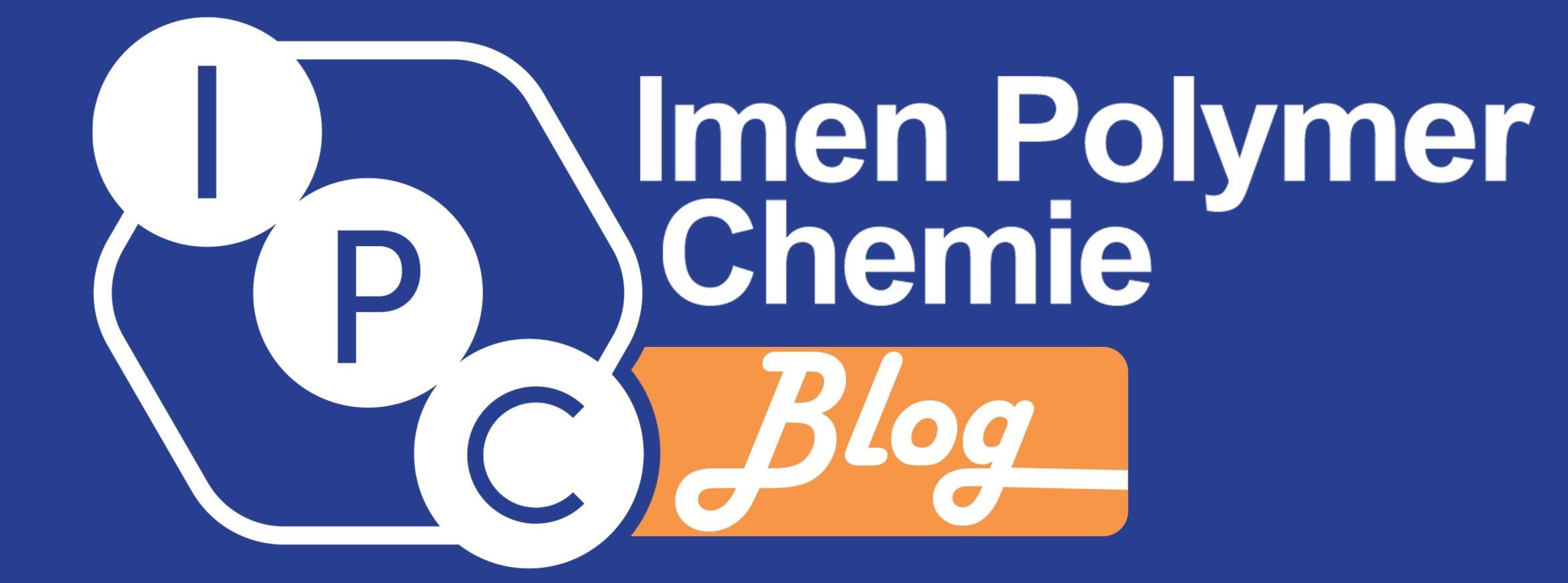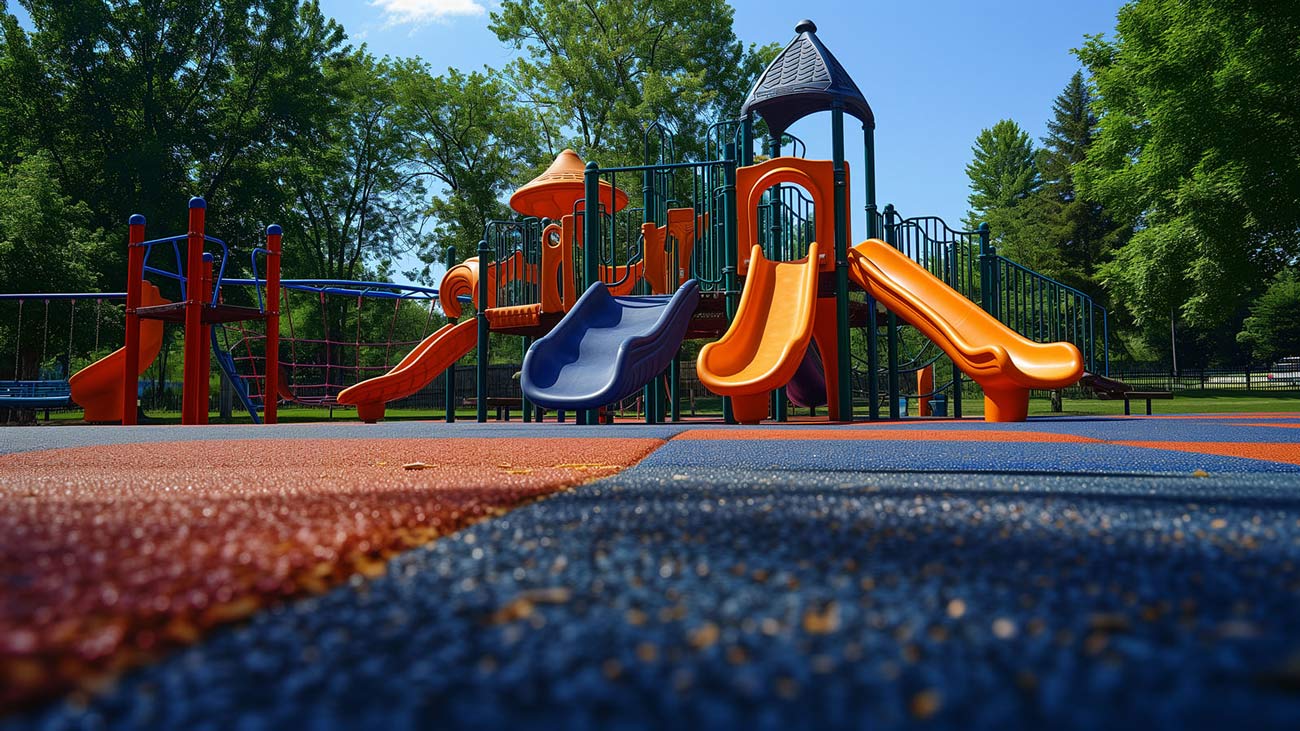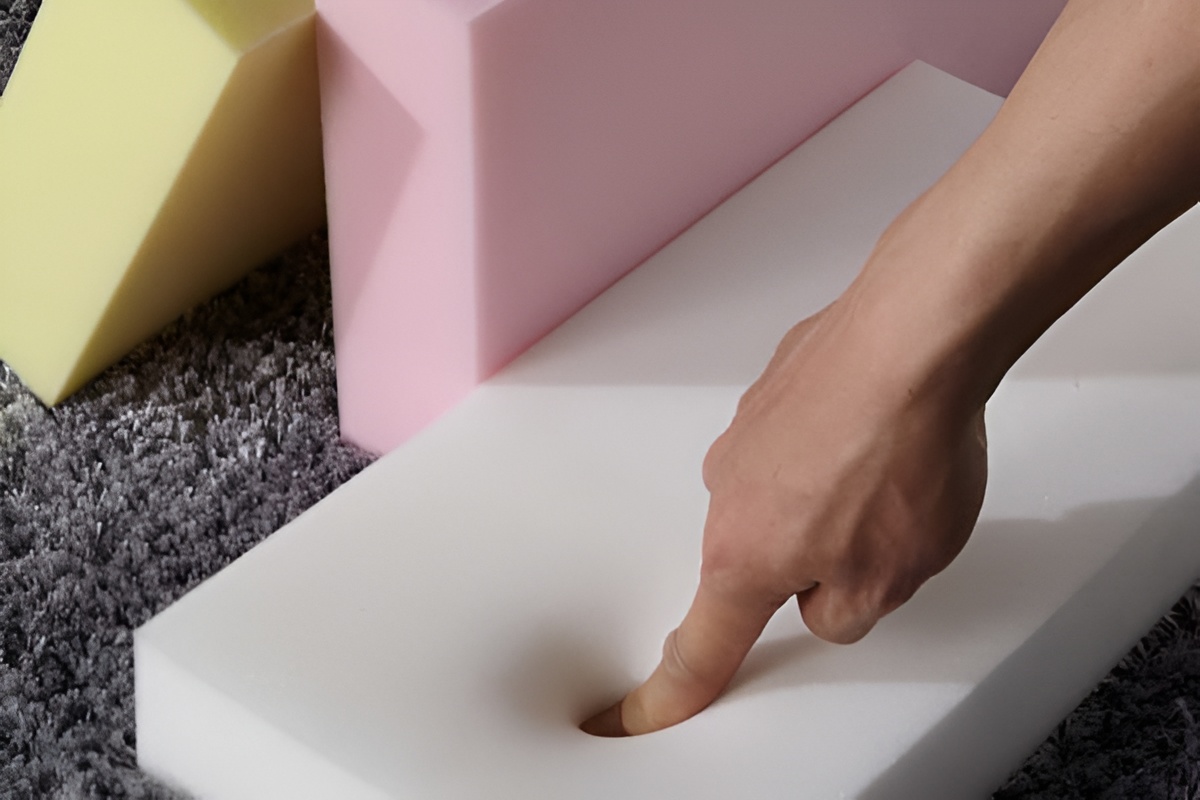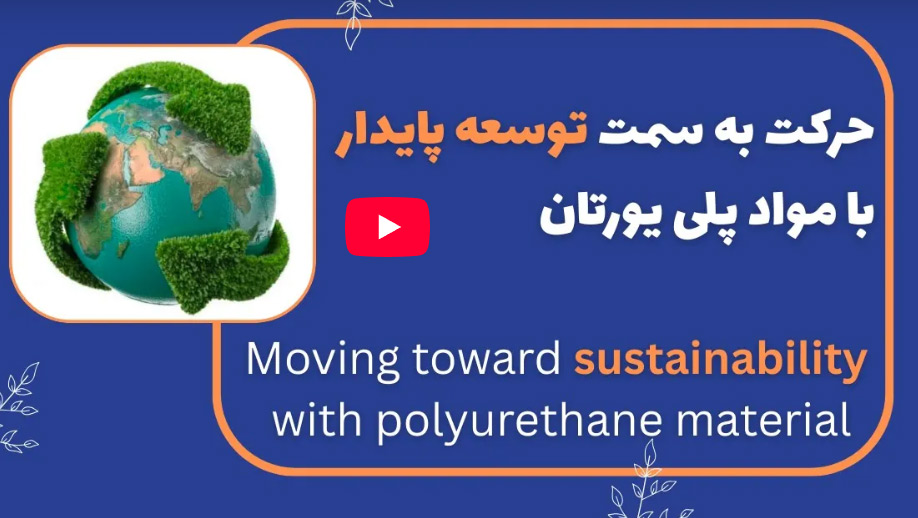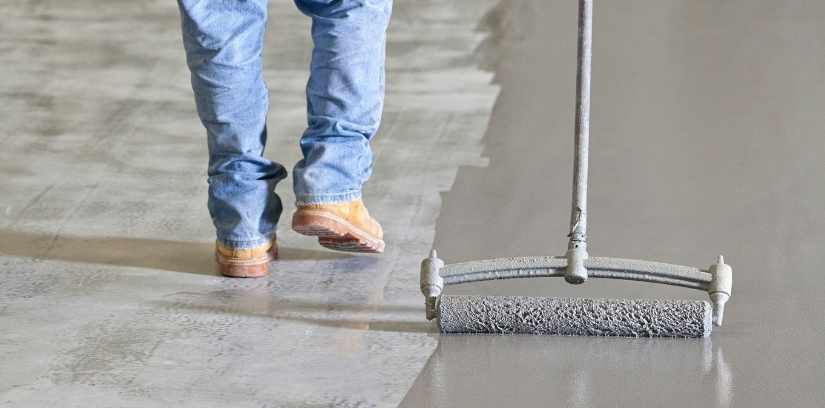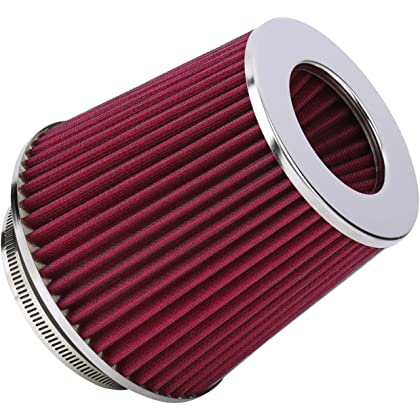Table of contents
Polyurethane adhesive for playground flooring
Polyurethane granule adhesives are special binders designed for flooring projects. They work by creating strong bonds between pieces of rubber granules/crumbs, resulting in a surface that is smooth, flexible, and long-lasting.
The adhesive is made from polyol and isocyanate, plus additives such as catalysts, UV stabilizers, viscosity modifiers, processing aids, and sometimes color pigments that resist sunlight.
The mixing ratio, viscosity, and working time of the adhesive must be adjusted based on the project’s conditions, such as the type of granule, final surface thickness, weather, and size of the job. Once the materials are mixed, a chemical reaction begins, creating a solid yet flexible polymer structure that keeps the surface strong and durable.
Why polyurethane adhesive is the best choice for playground surfaces?
Polyurethane rubber binder has various advantages that makes it one of the best choices in this field, including:
1. Better safety and shock absorption
One of the main reasons to use rubber granule flooring in playgrounds is its ability to absorb impacts. Polyurethane binder bonds the granules evenly, creating a soft, bouncy surface that helps reduce injuries from falls or running.
2. High durability in all weather conditions
Once cured, polyurethane adhesive forms a structure that resists water, freezing, UV sunlight, heat, and temperature changes. This makes the flooring last longer and reduces the need for frequent repairs. The surface won’t crack, peel, or fade easily, and keeps its quality for many years.
3. Can be applied on many surfaces
This system can be installed on concrete, asphalt, or compacted soil. PU adhesive is flexible and quick to apply, that makes it ideal for a wide range of projects. The installation and curing process is also relatively fast, which is especially important for large projects with strict deadlines.
4. Colorful and creative designs
By adding UV-resistant pigments to the adhesive or using colored granules, designers can create attractive and unique patterns for playgrounds, running tracks, or walking paths. This is a great benefit for urban space designers who want both safety and beauty.
5. Environmentally friendly
The rubber granules used are often made from recycled tires. Using polyurethane adhesive to bond these granules creates a durable product with a lower environmental impact, helping reduce industrial waste and supporting sustainable urban development.

Applications of polyurethane binder in rubber granule flooring
This system is not limited to playgrounds. It’s also used for:
- Public parks and sidewalk paths
- Schools, kindergartens, and educational areas
- Running tracks, outdoor sports courts, and multi-purpose fields
- Gyms and safe training areas
- Recreational areas in residential complexes
How to install rubber granule flooring with polyurethane binder?
In order to install rubber granule flooring the following steps should be done precisely.
1. Preparing the surface
The base must be completely dry, clean, and free from dust or oils. In some cases, a special primer is used to improve adhesion.
2. Mixing the rubber granules and adhesive
The granules and polyurethane foam adhesive are mixed in a specific ratio using the right type of mixer. This ratio depends on factors like temperature, humidity, and desired thickness.
3. Applying the mixture
The prepared mixture is spread evenly over the surface and smoothed with tools like trowels or rollers. The usual thickness is 0.39–0.79 inches.
4. Curing and use
The curing time depends on temperature and humidity but usually takes 24–48 hours. During this time, no one should walk or place objects on the surface.
Polyurethane Products
Tips for choosing the right polyurethane adhesive
When selecting polyurethane adhesive for rubber granule flooring, it’s important to consider the below factors:
- UV and weather resistance
- Suitable viscosity for easy mixing
- Working time that matches your project speed
- Compatibility with pigments for colored designs
- Full compatibility with the type of rubber granules you are using
Conclusion
Combining rubber granules with PU binder is a smart, safe, and cost-effective way to create surfaces for playgrounds, sports areas, and other public spaces. This method improves safety, extends the lifespan of the surface, and reduces environmental impact by reusing recycled rubber.
The final polymer structure created by the adhesive is smooth, flexible, and resistant to outdoor conditions, meeting high standards in both performance and appearance. By understanding how polyurethane adhesives work and choosing the right type, designers, contractors, and construction companies can make better decisions for long-lasting and attractive flooring solutions.
